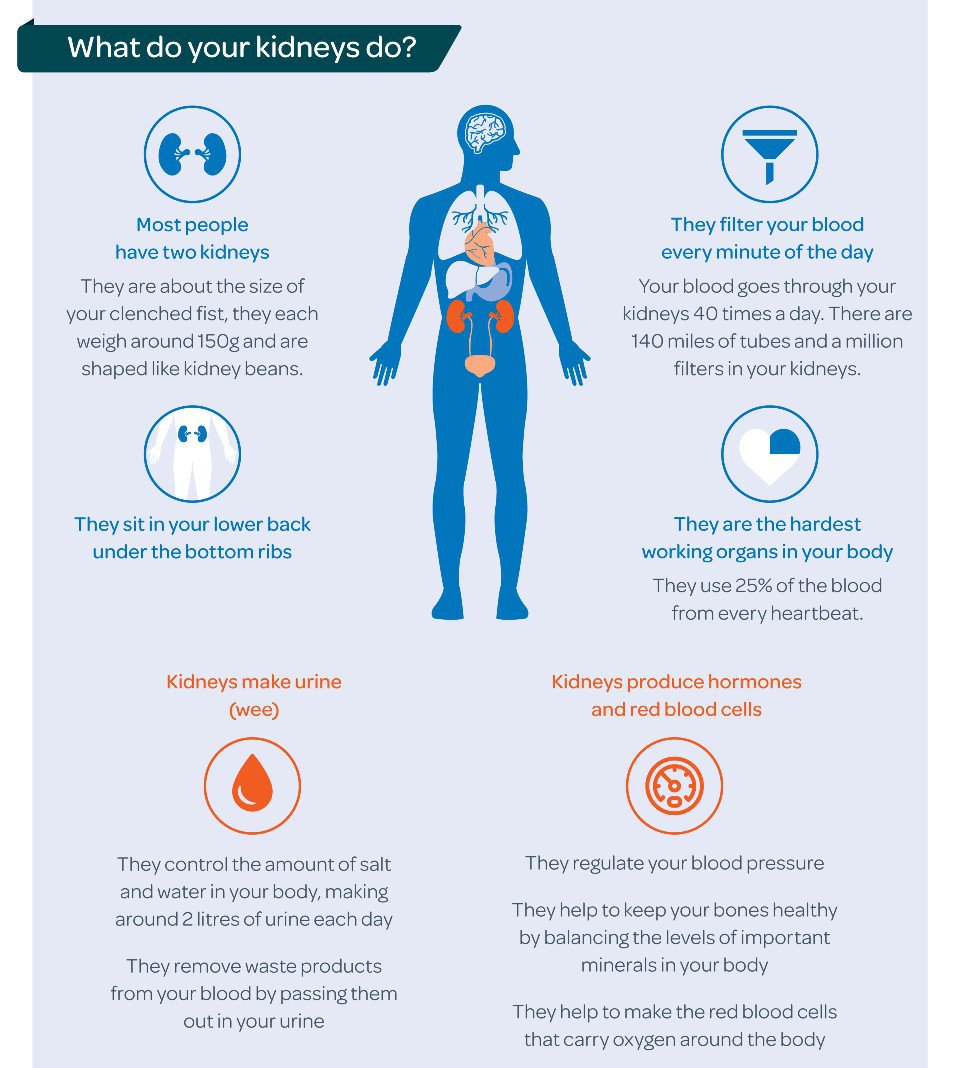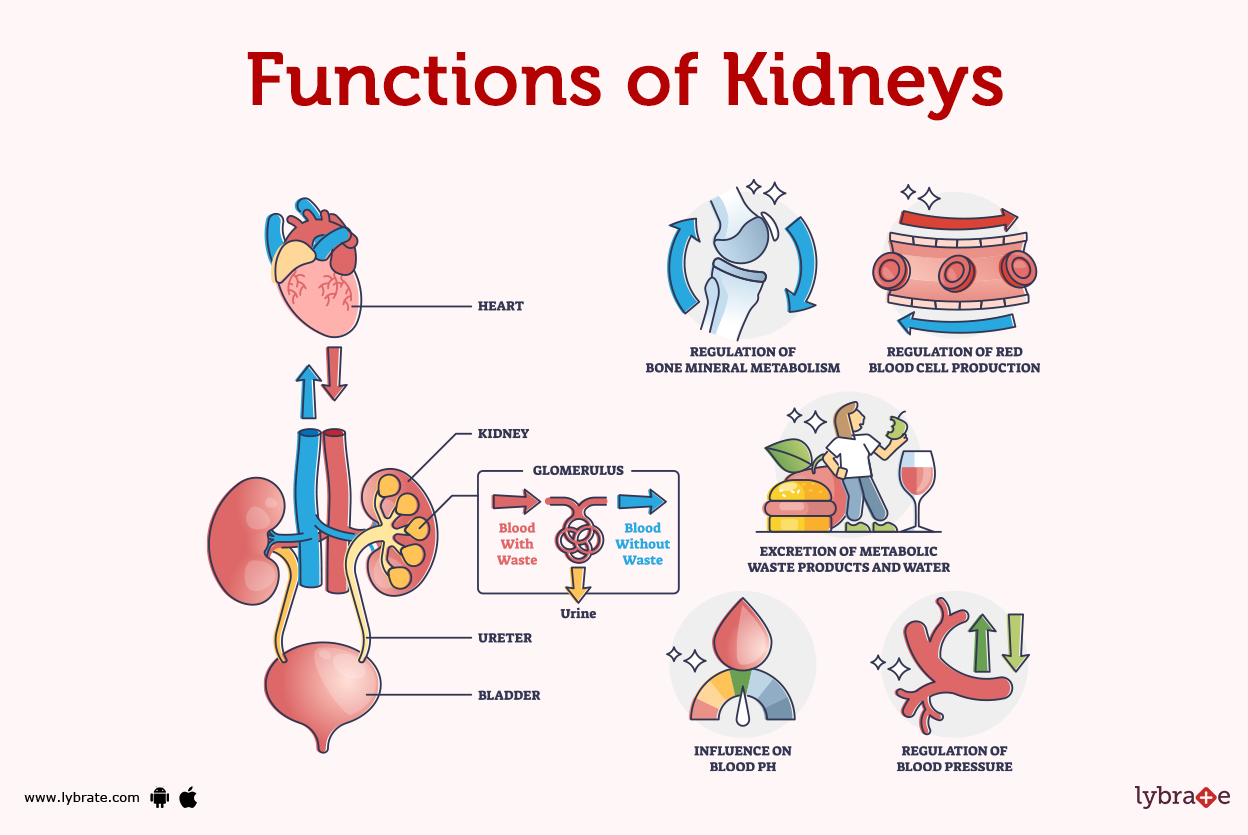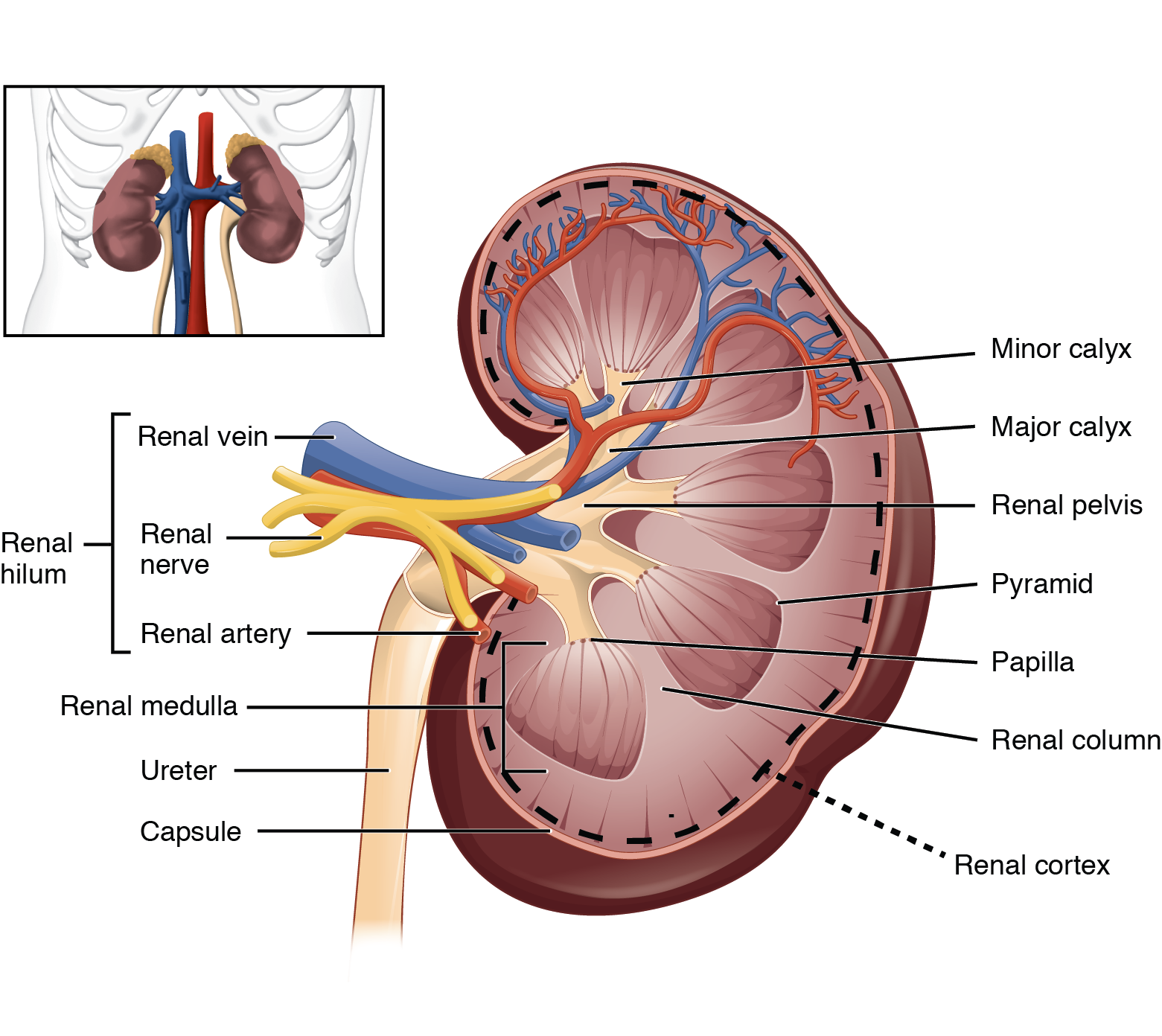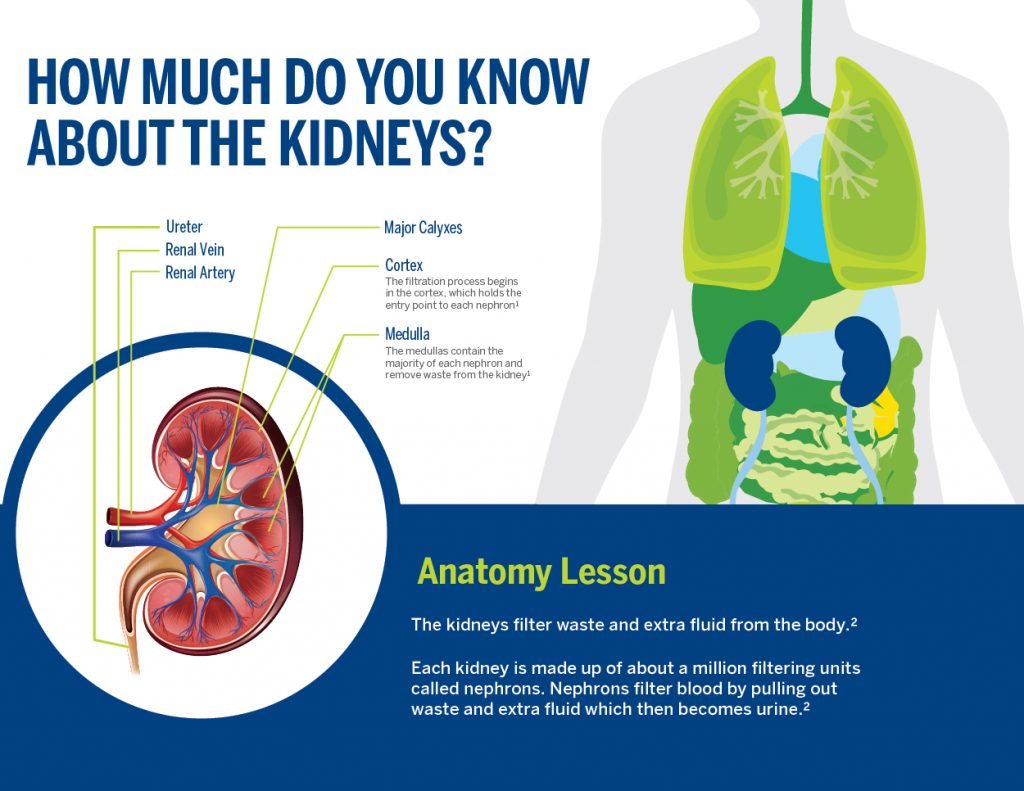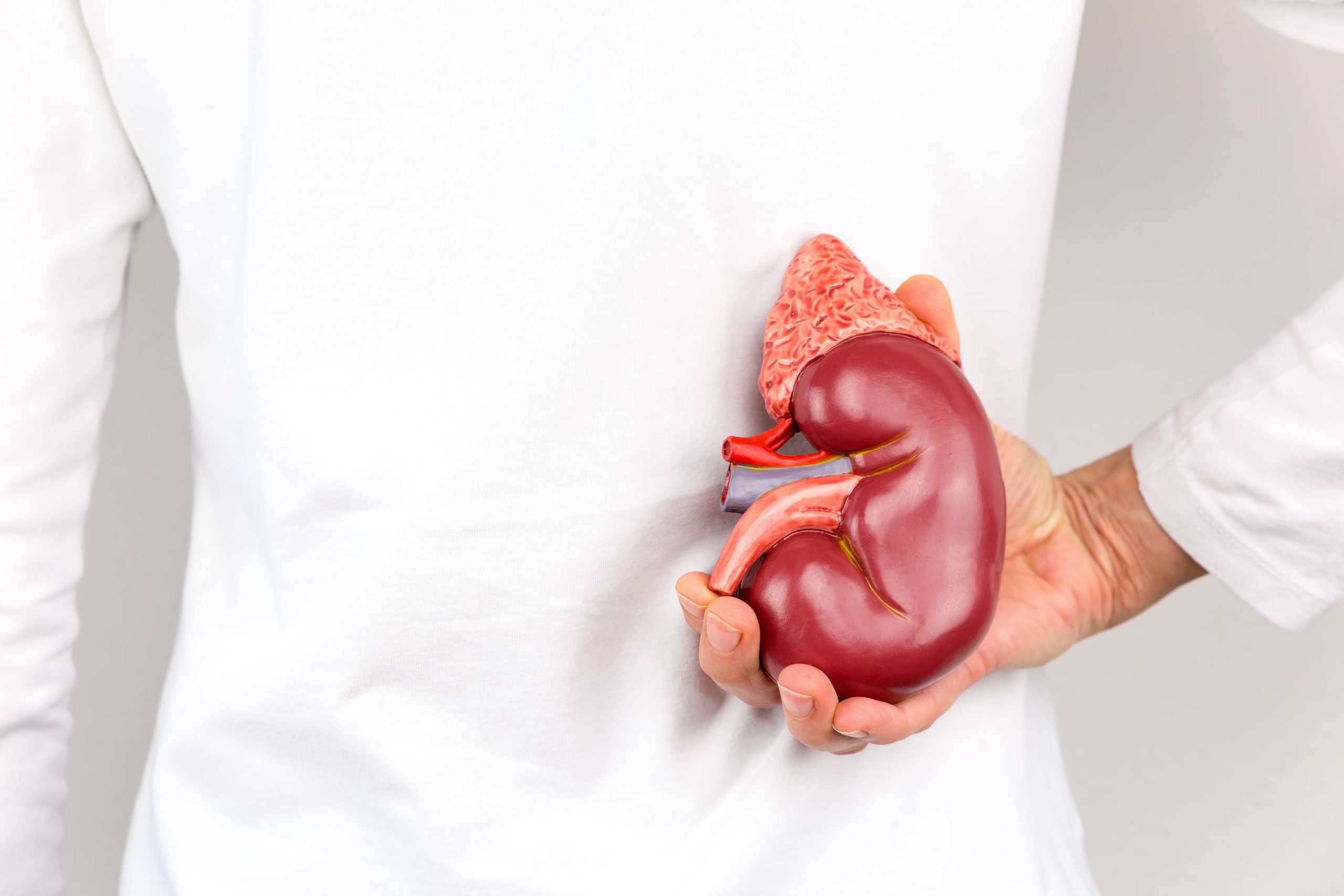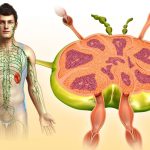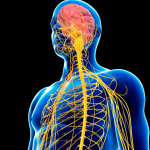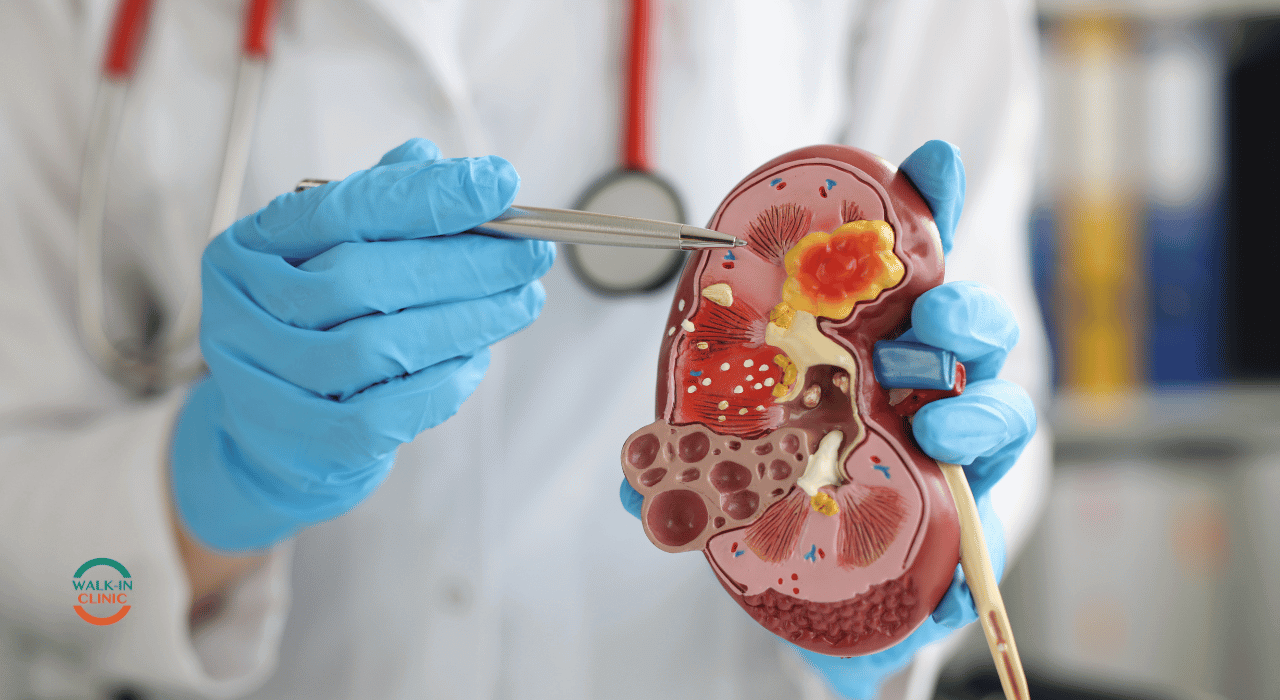
What are kidneys?
The kidneys are organs that sit at the back of your abdomen (tummy). They are found below your ribs on either side of your spine.
The kidneys are shaped like a bean and are about the size of your fist. Each kidney weighs about 150 grams.
Most people are born with 2 kidneys. The right kidney is often a little lower than the left.
What do kidneys do?
Kidneys are very important to your overall health. Your kidneys have 3 main roles.
1. Filtering blood
Your kidneys filter your blood, removing waste products that are then removed from your body in urine (wee).
2. Balancing fluids
Your kidneys balance the fluids and electrolytes in your body. Electrolytes are minerals, like sodium, calcium, and potassium, that have a key role in how your body functions.
3. Making hormones
Your kidneys produce hormones that are involved in:
- producing red blood cells
- keeping your bones healthy
- controlling your blood pressure
The kidneys are part of your urinary system
The kidneys are part of the urinary system, which also includes:
- ureters (tubes connecting the kidneys to the bladder)
- bladder (for storing urine)
- urethra (the tube connecting your bladder to the outside of your body, so that you can urinate (wee))
Blood travels to the kidneys through the renal arteries. It then passes through millions of tiny filters called nephrons, before leaving your kidneys via the renal veins.

Healthy kidneys
It’s important to keep your kidneys healthy, so that they can perform their role well. If your kidneys aren’t healthy, it can affect other organs in your body.
Things you can do to keep your kidneys healthy:
- don’t smoke
- If you have diabetes, keep your blood sugars well controlled
- If you have high blood pressure, get it checked regularly and keep it below the recommended levels
- if you are overweight, lose weight to a healthy level
- drink plenty of water
- eat a healthy diet that is high in fruit, vegetables, legumes, wholegrain cereals and dairy products
- exercise regularly (this reduces your risk of heart disease and high blood pressure, both risk factors for kidney disease)
- limit your intake of alcohol to no more than 2 standard drinks a day
- quickly treat any urinary tract infections or kidney stones
Kidney disease
It is difficult to know when your kidneys aren’t working well. You can lose up to 90% of your kidney function before you have any symptoms.
You should be aware of the risk factors that lead to kidney disease.
Kidney disease can lead to kidney failure, possibly requiring dialysis or a transplant.
Most kidney damage occurs gradually, over several years. If found early, changes to your lifestyle, diet and medicines may prevent further damage. Diagnosing kidney disease early is very important. You are at much higher risk of heart problems if you have kidney disease.
Your doctor might order blood and urine tests if you have diabetes, high blood pressure or heart disease. These tests are used to check your kidney function.

